28pcs Pure Natural Essential Oils Gift Set Massage Shower Diffuser Aroma Oil Lavender Vanilla Sage Jasmine Rose Stress Relief
$46.99 Original price was: $46.99.$36.99Current price is: $36.99.
36 in stock
The 28pcs/set ,we have old package and new package ,when you choose the order ship from China,you will get the new packages.when you choose the order ship from France warehouse,Poland warehouse ,Spain warehouse ,you will get the old package.
If you have any queastion ,please contact us ,thank you so much

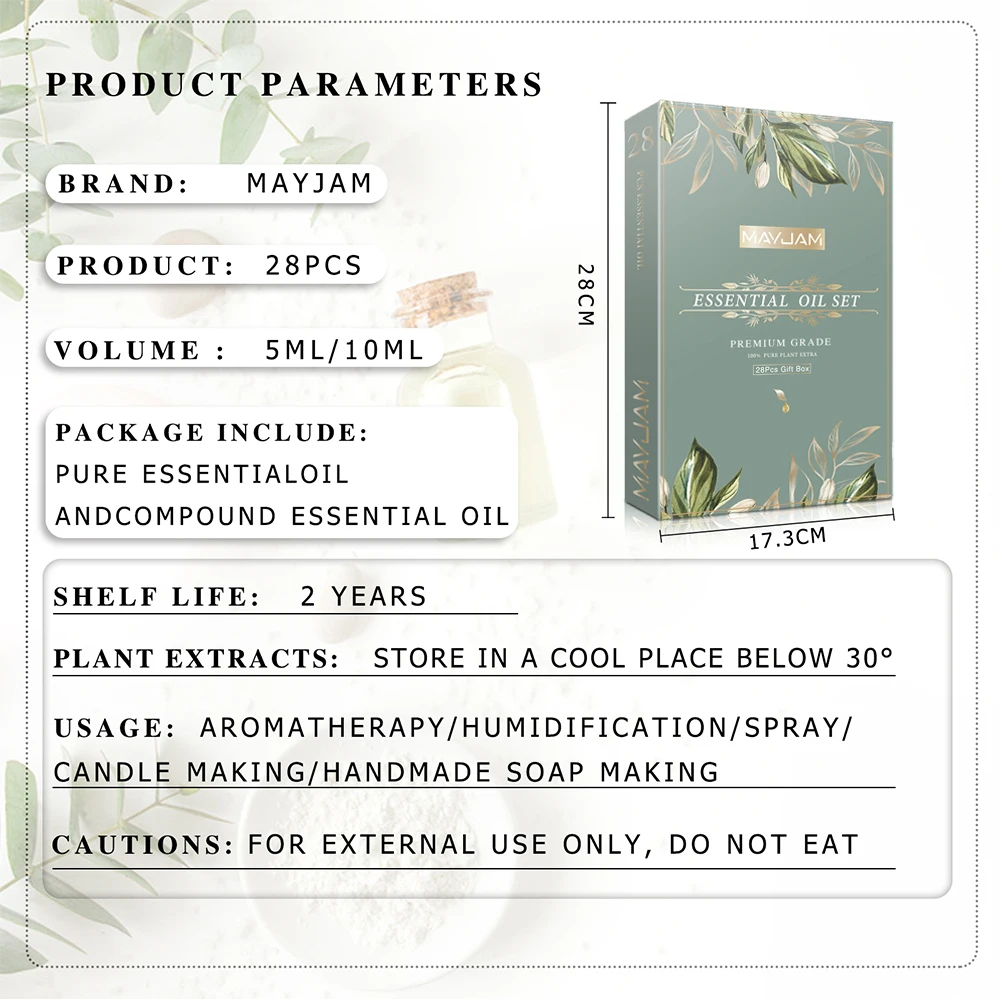

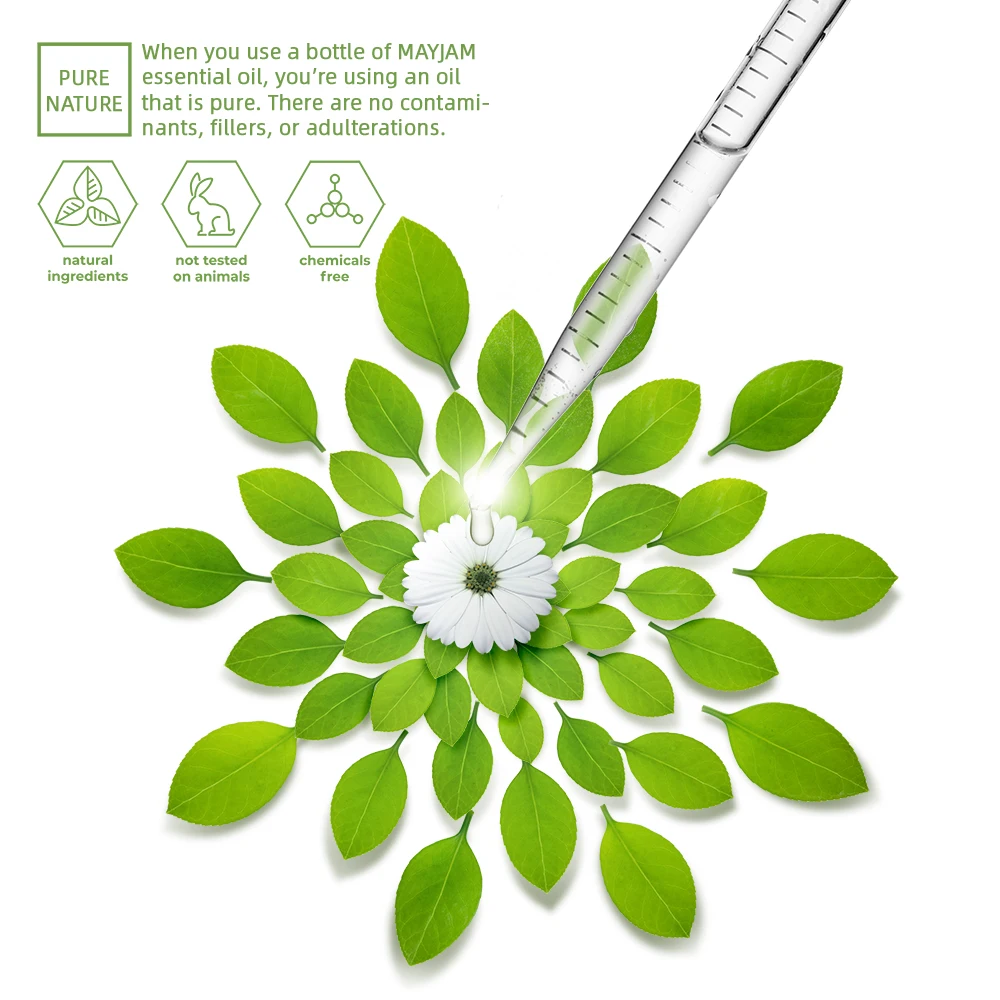

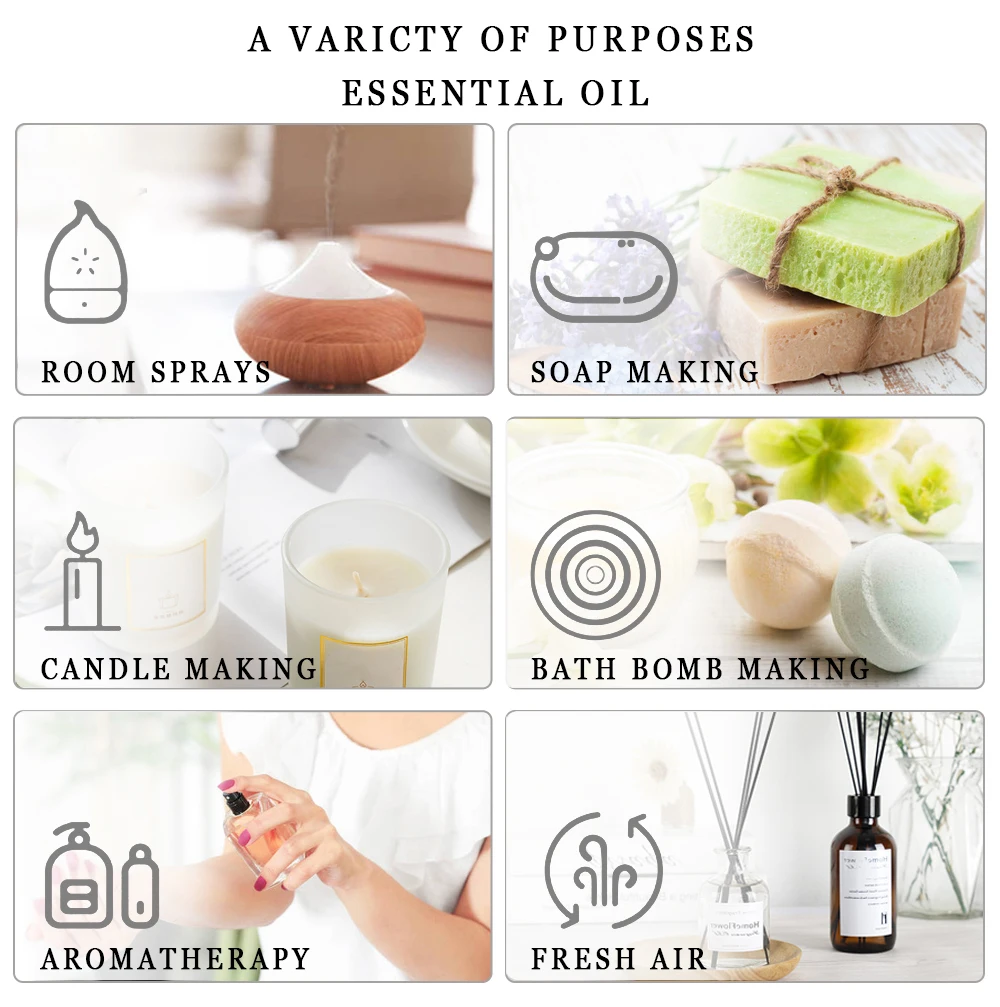
Essential Oil Uses
#1: Easy Inhalation
Place 1-2 drops of essential oil on a tissue. Place the tissue several inches from your nose and inhale (do not let the essential oil come in contact with skin, your eyes, nose or mouth). When trying an oil for the first time, use only one drop to ensure that you do not have a sensitivity or reaction to the oil.
#2: Steam Inhalation
Boil 2 cups of water. Pour the water into a bowl and add 1-4 drops of oil to the water. Use fewer drops if you are using an oil that may cause irritation to your mucous membranes (i.e. cinnamon, eucalyptus, rosemary, pine, thyme, cajuput, etc.). Place your nose about 12″ away from the bowl and inhale. D not inhale the steam constantly and if you notice any irritation or discomfort, stop immediately. Steam inhalation can help with colds and influenza. Use of energizing or relaxing oils can also make this method useful any time of day or night.
#3: General Household Freshening
Add a few drops of oil to your trash can, laundry wash, drain, vacuum bag filter, or on a tissue for placement in your drawers. Don’t let essential oil come into contact with furniture or finishes that could be damaged by the oil.
#4: Insect Repellent
Many essential oils including citronella, lavender, and peppermint act as a natural repellent against insects. Sprinkle a few drops of essential oil onto tissues or cotton balls and place near your doorways and windows to help repel insects. Be sure to read all safety data on the oils you use as some oils may not be suitable for use around pets. Be careful not to apply the essential oil directly onto fragile surfaces.
#5: Aromatherapy Massage
Add up to 12 drops of skin safe essential oil to 1 ounce carrier oil such as sweet almond oil and massage onto yourself or partner. Keep away from eyes and genital areas. Do not apply essential oils to the skin without first diluting them adequately. Be sure to also carefully read the safety information for the essential oils you choose to use.
#6: Bath
Essential oils do not stay mixed with water, and they can pool in spots touching the skin at full strength, causing the potential for severe irritation. Using a solubilizer such as Polysorbate 20 or Solubol is strongly recommended. (For the solubilizer that you choose, follow the usage guidelines provided by your vendor.) Add this blend to your running bath water and mix very well before getting into the tub. Be sure to read the safety data for the essential oils you choose to use. Essential oils that are at higher risk of causing irritation and sensitization should be avoided in the bath, even if you solubilize them.
#7: DIY
Essential oils can be used in making homemade lotions, facial toners, shampoos, perfumes, soaps, shower gels, and other natural products.
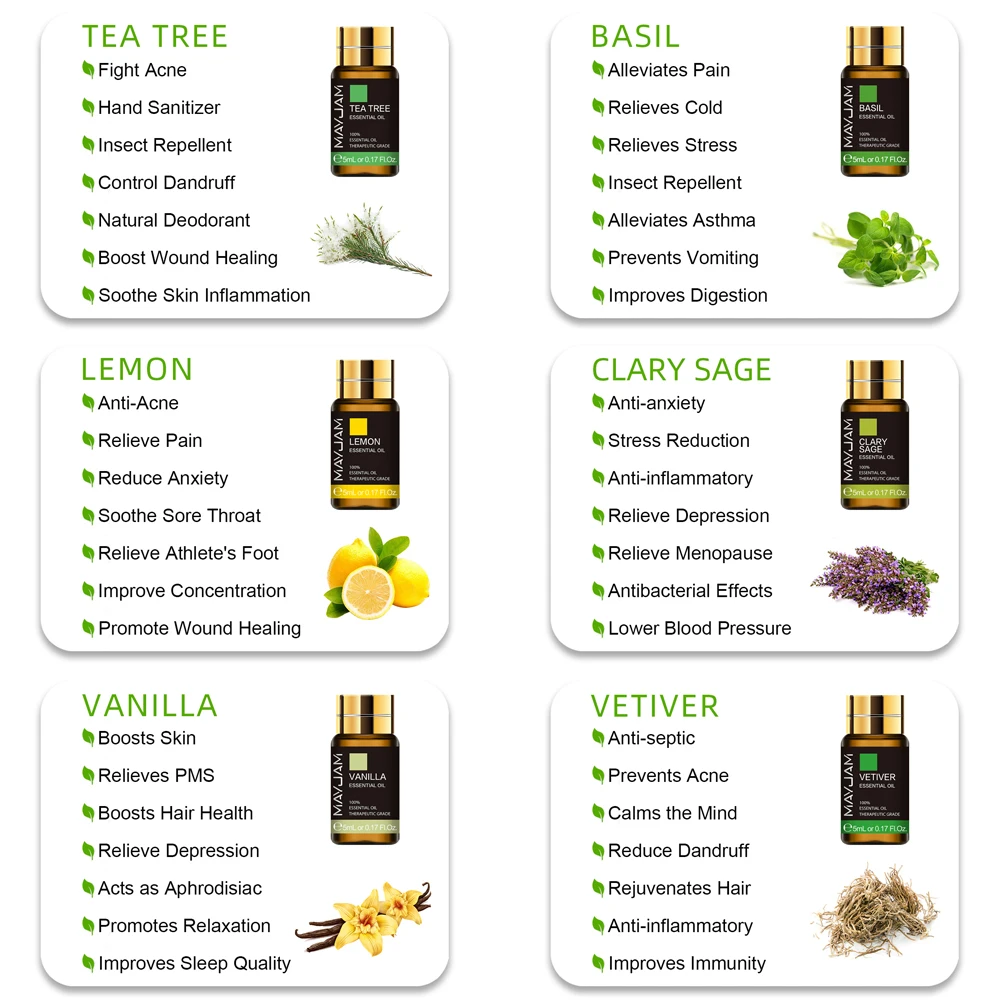
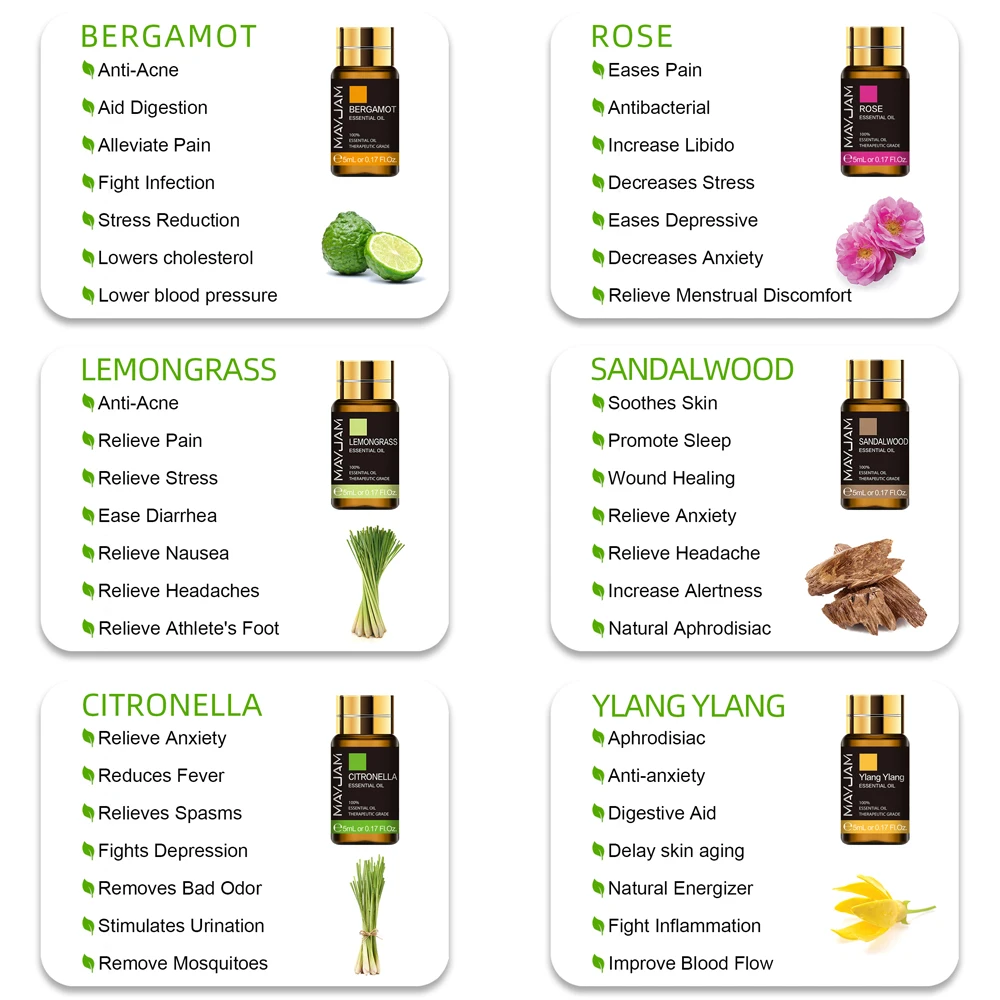
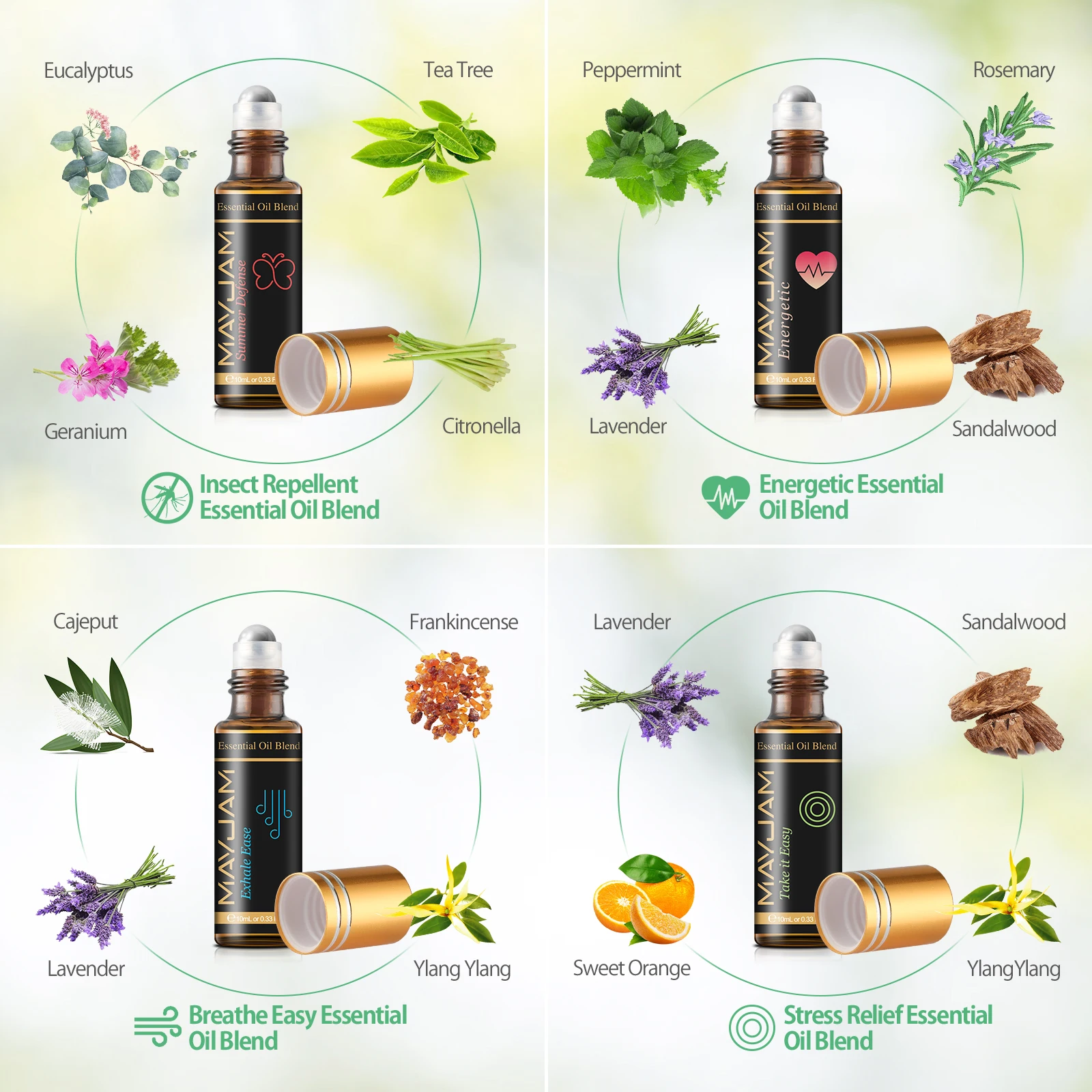
Warning:
* Do not use essential oils internally.
* Do not apply directly to skin; always dilute with carrier oil.
* Keep out of reach of children.* Avoid contact with eyes and mucous membranes.
* Do not use citrus oils before exposure to UV light.
* Use only pure essential oils; avoid synthetic fragrances.
* Avoid prolonged exposure without ventilation.
* Store essential oils and carrier oils properly to avoid degradation and rancidity.
| Weight | 0.735 kg |
|---|---|
| Dimensions | 25 × 10 × 2 cm |
| Brand Name | MAYJAM |
| Number of Pieces | COMBO |
| Essential Oil Type | Pure Essential Oil |
| Origin | Mainland China |
| Model Number | SY5632 Essential Oil |
| Item Type | Essential Oil |
| Package Include | 28 x Bottle MAYJAM Essential Oil |
| Used for | Hair Care/Face Care/Body Care |
| Volume | 5ml/10ml |
| Usage 1 | Aromatherapy Massage Spa Bath Fragrance |
| Usage 2 | Pure Essential Oils for Aromatherapy |
Be the first to review “28pcs Pure Natural Essential Oils Gift Set Massage Shower Diffuser Aroma Oil Lavender Vanilla Sage Jasmine Rose Stress Relief” Cancel reply
Related products
Massage Items
Massage Items
Massage Items
Massage Items





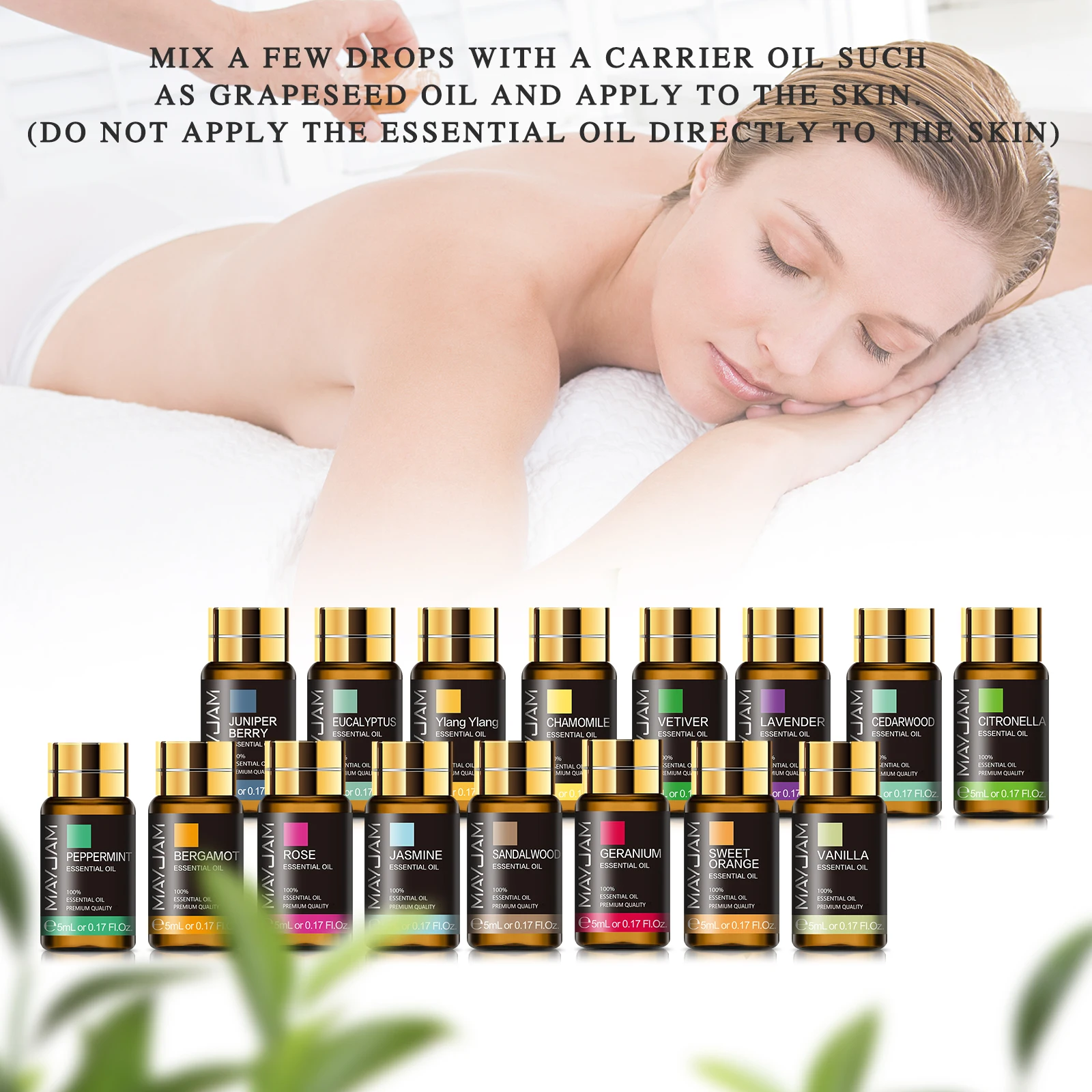




















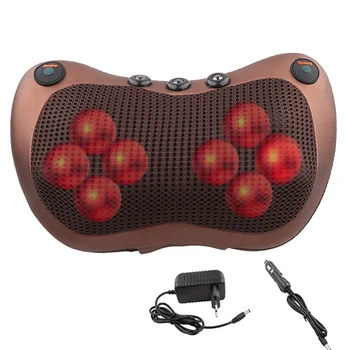
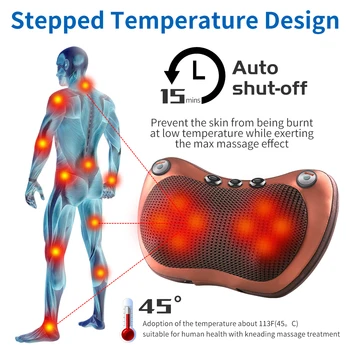


Reviews
There are no reviews yet.